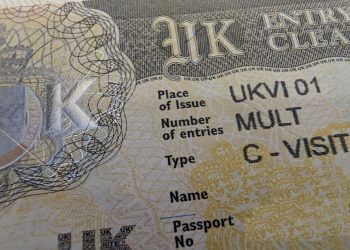Are you thinking of relocating to Canada from Asia, Africa, the Arab World, or elsewhere? Canada is renowned for its high salaries and superior quality of life, albeit with a caveat of low temperatures in some regions. For those seeking stable and lucrative employment opportunities, Canada introduces three comprehensive pathway programs, aimed at facilitating immigration in 2024.
Canada’s introduction of these immigration programs is a strategic response to skill shortages within the country. This gap in the labor market arises from a lack of sufficiently qualified local candidates, prompting employers and government departments to look beyond their borders. To address this, Canada is keen on attracting international professionals with the requisite skills and qualifications. To facilitate this, the country is streamlining the process by offering expedited work visas, making it more efficient for skilled professionals worldwide to contribute to and benefit from Canada’s dynamic and diverse economy.
This article provides an in-depth exploration of these Canadian pathway immigration programs. It’s a guide for anyone considering making a move to Canada by choosing any of the following listed 3 immigration programs for employment in Canada.
Pathway # 01: Move to Canada via Express Entry Program
The Express Entry System is Canada’s primary method for skilled workers to immigrate. It operates on a points-based system, known as the Comprehensive Ranking System (CRS), which evaluates candidates on various factors like age, work experience, language proficiency in English or French, and education.
Work Experience Over Degree: While a degree can provide additional points, extensive work experience and strong language skills can make your application competitive.
CRS Score Assessment: It’s crucial to use the online CRS tool to understand your standing in the Express Entry pool. This score will determine your chances of receiving an invitation to apply for PR.
Pathway # 02: Move to Canada via Provincial Nominee Program
PNPs are specialized immigration programs such as Quebec immigration program run by Canadian provinces and territories to meet their specific skilled shortage professional needs.
Targeted Skills and Trades: Many PNPs focus on in-demand skills and trades rather than academic qualifications. Your work experience and skills that align with a province’s needs can be your ticket to immigration.
Research and Application: You should explore various PNPs through Canada’s official government website to find the one that suits your profile.
Pathway # 03: Other Immigration Options for Canada in 2024
Apart from the above two main pathways for moving to Canada in 2024, there are 3 alternative routes to consider as well:
Spousal/Common-Law Partner Sponsorship: If your partner is a Canadian citizen or a permanent resident, they can sponsor your immigration.
Family Sponsorship: Having close family members in Canada who are citizens or permanent residents can also be a viable pathway.
Refugee or Protected Person: Those who qualify as refugees or protected persons under Canadian law have a chance for resettlement.
This guide provides a streamlined overview to help you assess your eligibility for Canada’s key immigration pathways in 2024.
Eligibility Criteria Checklist for Canadian Immigration Programs 2024
General Eligibility Criteria for Canadian Immigration Programs:
Work Experience: Minimum of one year of full-time (or equivalent part-time) skilled work experience within the past 10 years. Experience should be in a skilled occupation listed under Canada’s National Occupational Classification (NOC). For PNPs, the experience should be relevant to an occupation in demand within a specific province or territory.
Language Proficiency: Proficiency in English or French, generally requiring a minimum score of Canadian Language Benchmark (CLB) 7 across all four language skills (speaking, listening, reading, and writing). Some PNPs might demand higher levels for certain roles.
Education: Post-secondary education is beneficial but not always mandatory. Higher education may be preferred, particularly in PNPs, and can enhance the application.
Age: Ideal age range is typically between 18 and 35 years, though points may be awarded for candidates up to 45 years in the Express Entry system.
Adaptability: Factors such as previous Canadian work or educational experience, or having family ties in Canada, can be advantageous. PNPs may also consider an individual’s commitment to settling and contributing to the specific province or territory’s economy.
Additional Considerations for Express Entry: Arranged employment in Canada, provincial nomination, having a Canadian sibling, and proficiency in French can provide additional points.
Other Pathways: For spousal/common-law partner sponsorship, a genuine relationship with a Canadian citizen or permanent resident is required. Family sponsorship requires having a close family member in Canada willing to sponsor. Refugees or protected persons must meet the criteria under Canadian law.
Still have some travel questions? Ask in our Travel WhatsApp Group.








